
The Enchanting Masurian Lake District
The Masurian Lake District, located in Poland, is a magical region filled with more than 2,000 lakes. It is a paradise for nature lovers and adventure seekers. The lush forests, serene lakes, and charming villages offer a perfect escape from the hustle and bustle of city life. Visitors can enjoy a range of activities such as sailing, kayaking, and fishing in the pristine waters. The area is also known for its rich history, with numerous castles and historic sites scattered throughout the region. The Masurian Canal, an impressive engineering feat from the 19th century, is a must-see attraction. In addition to water sports and historical exploration, the Masurian Lake District is a great place for hiking and cycling. The well-marked trails take you through breathtaking landscapes and offer stunning views of the lakes and forests. Wildlife enthusiasts will also appreciate the chance to spot rare birds and other animals in their natural habitats.
Local tips in Masurian Lake District
- Best time to visit is from May to September for pleasant weather and outdoor activities.
- Rent a bicycle to explore the scenic trails and get close to nature.
- Stay in one of the charming lakeside cottages for a true local experience.
- Try local delicacies like fresh fish from the lakes and traditional Polish dishes.
- Visit the Wolf's Lair, Hitler's wartime headquarters, for a fascinating historical tour.
The Enchanting Masurian Lake District
The Masurian Lake District, located in Poland, is a magical region filled with more than 2,000 lakes. It is a paradise for nature lovers and adventure seekers. The lush forests, serene lakes, and charming villages offer a perfect escape from the hustle and bustle of city life. Visitors can enjoy a range of activities such as sailing, kayaking, and fishing in the pristine waters. The area is also known for its rich history, with numerous castles and historic sites scattered throughout the region. The Masurian Canal, an impressive engineering feat from the 19th century, is a must-see attraction. In addition to water sports and historical exploration, the Masurian Lake District is a great place for hiking and cycling. The well-marked trails take you through breathtaking landscapes and offer stunning views of the lakes and forests. Wildlife enthusiasts will also appreciate the chance to spot rare birds and other animals in their natural habitats.
When is the best time to go to Masurian Lake District?
Iconic landmarks you can’t miss
Wolf's Lair
Discover Wolf's Lair, Hitler's historic military headquarters in Poland, where history and nature intertwine in a captivating experience.
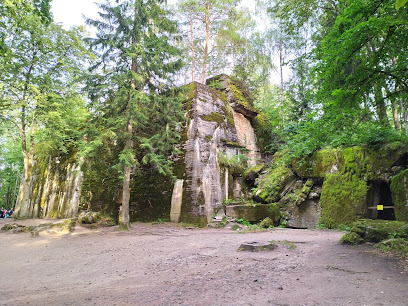
Park wodny Tropikana
Dive into endless fun at Tropikana Water Park in Mikołajki – the ultimate family-friendly destination for aquatic adventures and relaxation.
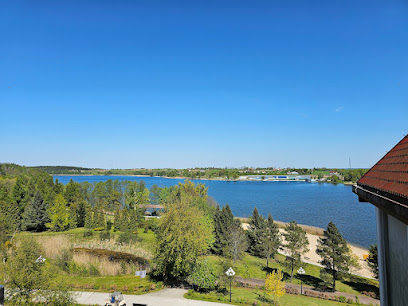
Reszel Castle
Explore the timeless beauty and rich history of Reszel Castle, a captivating landmark in Poland offering art, dining, and breathtaking views.

Forest Arboretum of Warmia i Mazur
Explore the Forest Arboretum of Warmia i Mazur, a botanical haven in Kudypy showcasing stunning flora and tranquil landscapes perfect for nature enthusiasts.
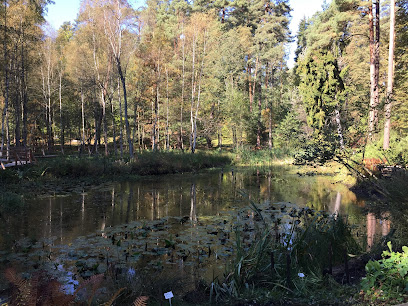
Lawendowe pole
Experience the beauty and tranquility of Lawendowe Pole, a stunning lavender farm in Nowe Kawkowo, Poland, perfect for relaxation and exploration.
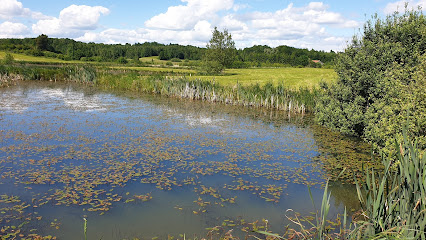
Mazury Landscape Park
Explore the pristine lakes, lush forests, and diverse wildlife at Mazury Landscape Park, a natural paradise in Poland's northeastern region.
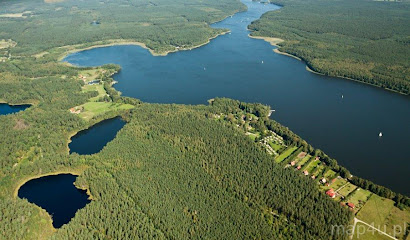
Zakręt
Explore Zakręt, a stunning nature preserve in Krutyń, where tranquility and natural beauty await every visitor.
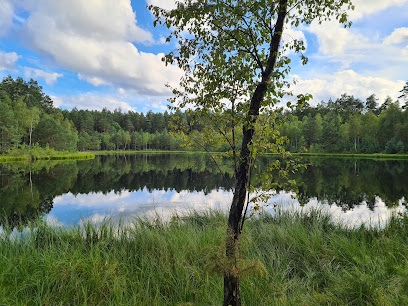
Plaża przy księżycowym dworku
Discover the serene beauty of Plaża przy księżycowym dworku in Kętrzyn, a perfect escape for relaxation and nature lovers.
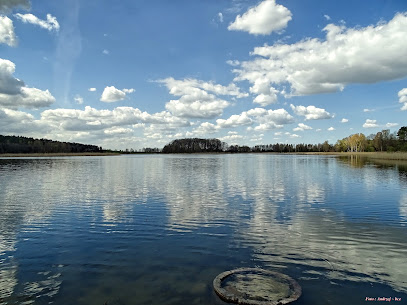
Unmissable attractions to see
Park wodny Tropikana
Experience thrilling water adventures and family fun at Park Wodny Tropikana, the ultimate water park destination in Mikołajki, Poland.
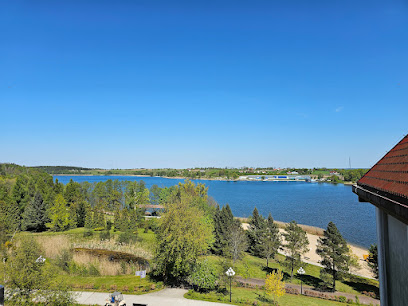
Teutonic castle in Nidzica (Warmian-Masurian Voivodeship)
Discover the enchanting Teutonic Castle in Nidzica, a historical gem showcasing medieval architecture and local history in the heart of Warmian-Masurian Voivodeship.
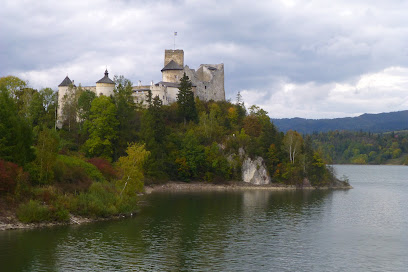
Ethnographic Park in Olsztynek
Explore the Ethnographic Park in Olsztynek, a captivating open-air museum showcasing Poland's rich cultural heritage and traditional crafts.
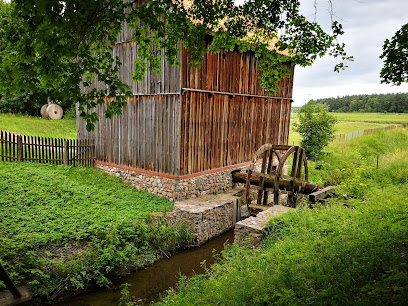
Mazurolandia and Miniature Park Warmia i Mazur
Explore Mazurolandia and Miniature Park Warmia i Mazur: A Family-Friendly Adventure with Miniatures and Rides in Poland's Scenic Landscape.
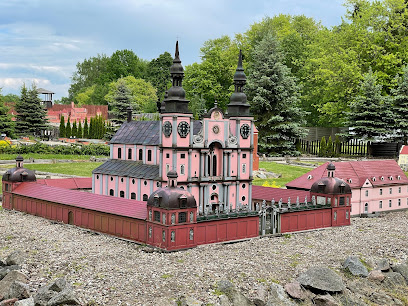
Forest Arboretum of Warmia i Mazur
Explore the serene beauty of the Forest Arboretum of Warmia i Mazur, a tranquil haven filled with diverse flora and stunning landscapes in Poland.
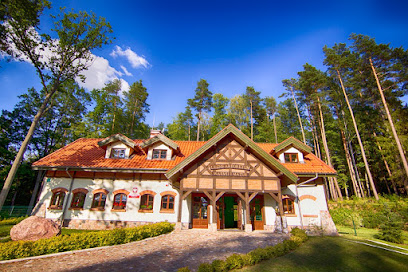
Warmiński Zwierzyniec
Explore Warmiński Zwierzyniec, a captivating zoo in Nikielkowo, Poland, where wildlife and nature come together for an unforgettable family experience.
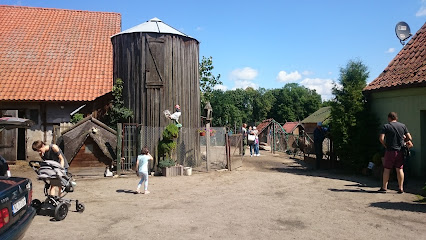
Amusement Park Active BARTBO
Experience the ultimate thrill at Amusement Park Active BARTBO in Olsztyn, where fun and adventure come alive for all ages.
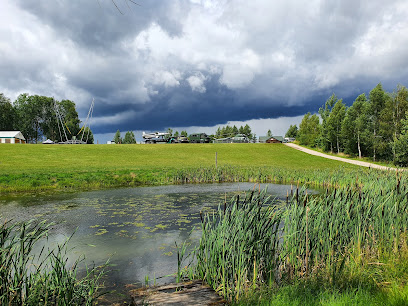
Obserwatorium Astronomiczne
Explore the cosmos at Olsztyn's Obserwatorium Astronomiczne, a captivating blend of science and wonder for stargazers and families alike.
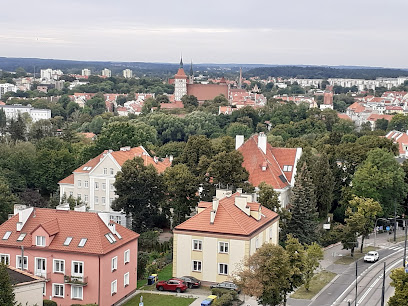
Lawendowe pole
Explore the enchanting lavender fields of Lawendowe Pole, a must-visit destination in Poland for nature lovers and tranquility seekers.
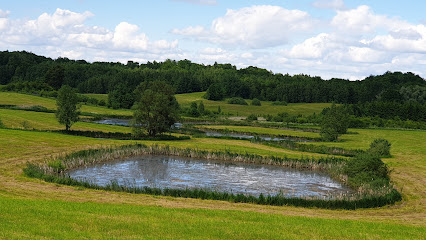
Muzeum Mazurskie w Owczarni
Explore the fascinating local history of Mazuria at Muzeum Mazurskie w Owczarni, a captivating destination for culture enthusiasts.
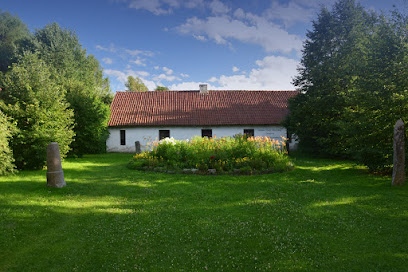
Źródła Rzeki Łyny
Explore the enchanting źródła Rzeki Łyny, a wildlife refuge and stunning natural attraction in Poland, perfect for nature lovers and outdoor enthusiasts.
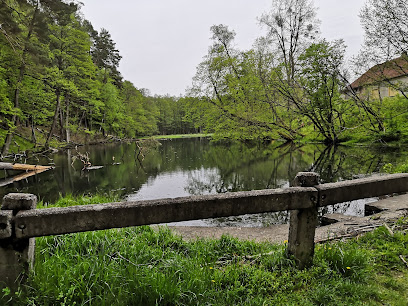
Mazury Landscape Park
Mazury Landscape Park: A Natural Paradise in Poland, Perfect for Nature Lovers and Outdoor Adventurers.
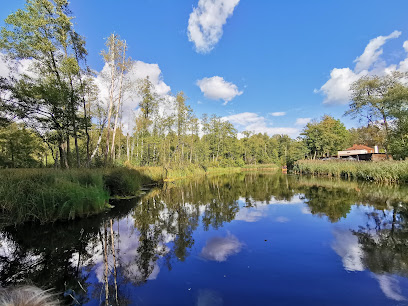
Molo Kortowo
Experience the beauty and tranquility of Molo Kortowo, a lakeside gem in Olsztyn, offering relaxation, recreation, and stunning natural scenery.
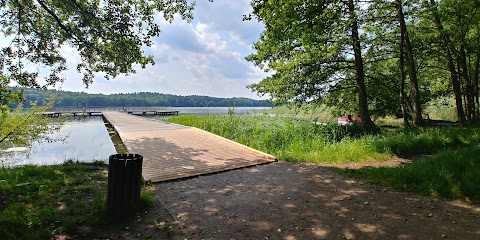
Wrota Warmii
Discover the rich cultural heritage of Poland at Wrota Warmii, a captivating museum showcasing the history and art of the Warmia region.
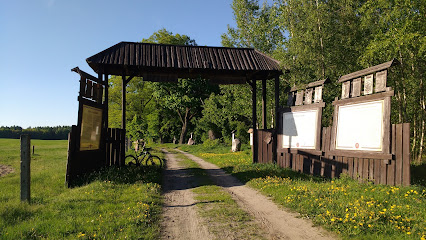
Ostróda Museum
Explore the cultural heritage of Ostróda at the Ostróda Museum, where history comes alive through engaging exhibits and artifacts.
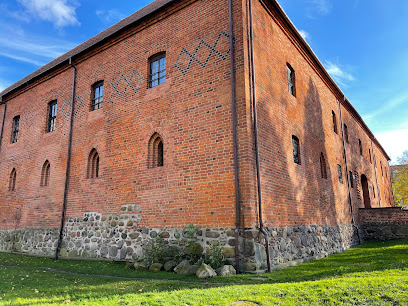
Essential places to dine
McDonald’s
Discover comfort food at McDonald's Olsztyn - where global fast food meets local flavor in a welcoming atmosphere.
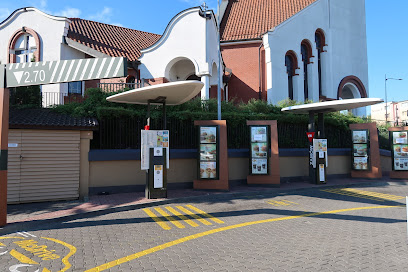
Restauracja „Przystań”
Experience exquisite modern European cuisine at Restauracja „Przystań”, Olsztyn's premier dining destination with stunning waterfront views.
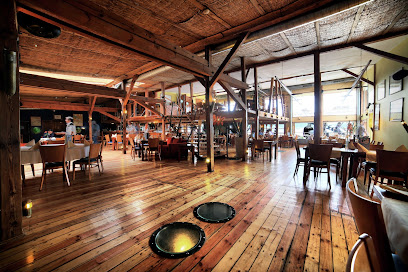
Karczma Warmińska
Savor authentic Polish cuisine at Karczma Warmińska in Gietrzwałd—where tradition meets taste in every delightful dish.
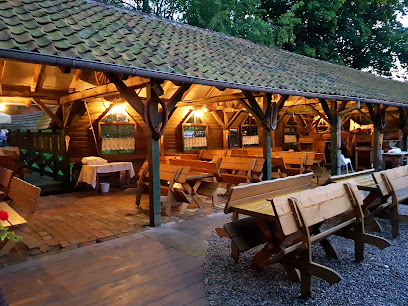
KFC Olsztyn Pstrowskiego
Savor delicious fast food classics at KFC Olsztyn Pstrowskiego while exploring the charming city of Olsztyn.
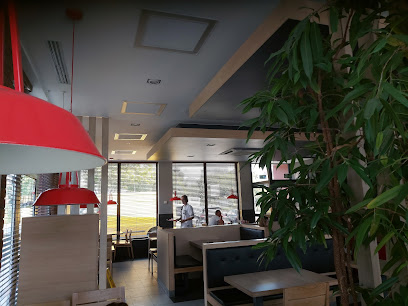
Cudne Manowce
Discover the charm of Cudne Manowce in Olsztyn – where family-friendly dining meets delightful local flavors.
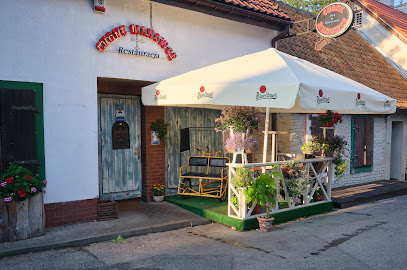
Karczma Nad Łyną
Experience authentic Polish cuisine at Karczma Nad Łyną in Olsztyn – where tradition meets taste in a cozy family-friendly setting.
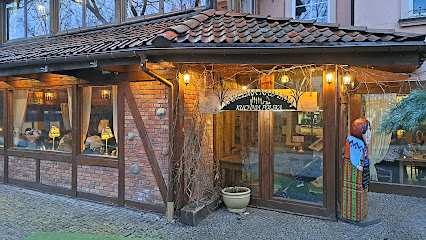
McDonald's
Savor familiar favorites at McDonald's Olsztyn – where comfort food meets convenience amidst your travels.
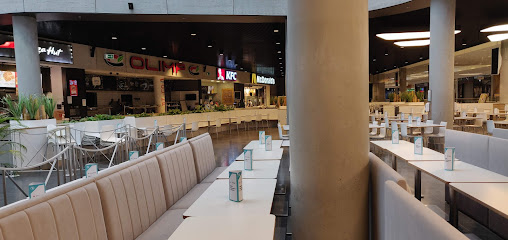
Sielanka Restauracja & Bankiet
Discover the charm of Polish cuisine at Sielanka Restauracja & Bankiet - where every meal is a delightful journey.
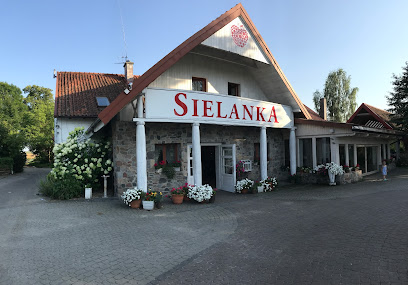
KFC Ostróda MOP S7
Discover KFC Ostróda MOP S7 for delicious American fast food amidst the scenic beauty of Poland's charming town.
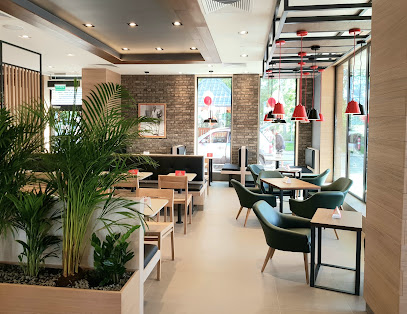
Restauracja Między Deskami
Discover the perfect blend of modern European cuisine and stunning marina views at Restauracja Między Deskami in Tomaszkowo.
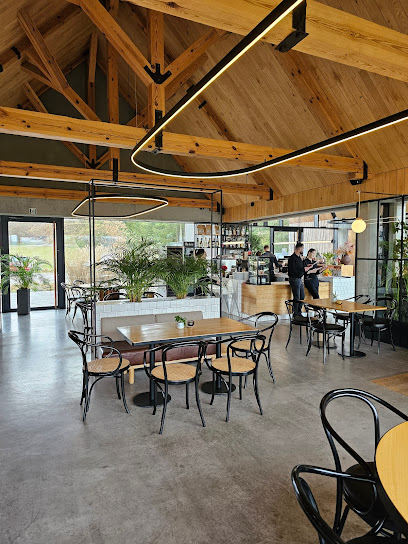
Plankton
Experience the best of Polish seafood at Plankton in Olsztyn - where every dish tells a story.
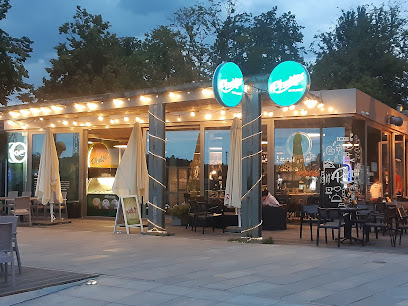
Smażalnia Pluski
Discover Smażalnia Pluski: Where Fresh Fish Meets Cozy Atmosphere in Beautiful Pluski.
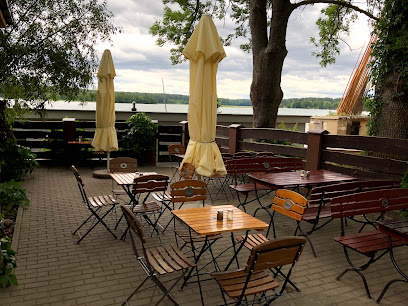
Restauracja z Zielonym Piecem
Discover authentic Polish flavors at Restauracja z Zielonym Piecem in Olsztynek – where tradition meets taste in every bite.
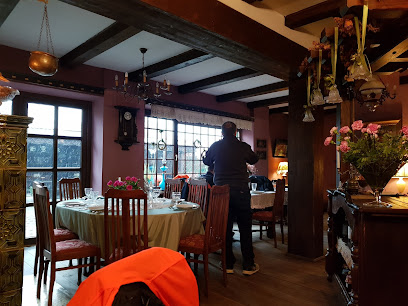
Oberża Pod Psem
Discover Oberża Pod Psem: where authentic Polish cuisine meets rich cultural heritage in Kadzidłowo.
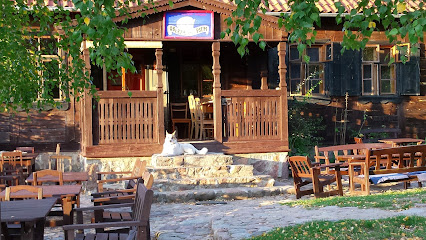
Tiffi Boutique Hotel
Experience luxury at Tiffi Boutique Hotel in Olsztyn—your perfect lakeside retreat with fine dining and rejuvenating spa services.
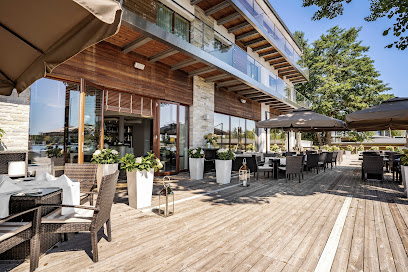
Markets, malls and hidden boutiques
Action Olsztyn
Discover unique gifts and DIY treasures at Action Olsztyn, your go-to destination for local crafts and souvenirs in Poland.
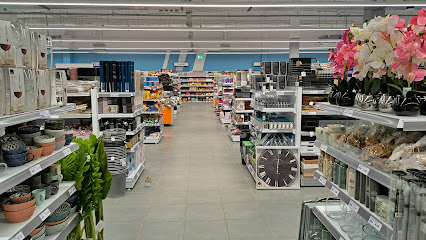
Netto
Experience budget-friendly shopping at Netto in Olsztynek, your ideal destination for groceries and local treats.
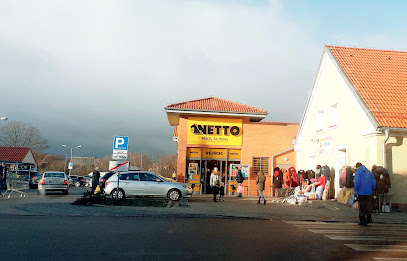
Plaża Miejska
Experience the vibrant beach life at Plaża Miejska in Mrągowo, where relaxation meets exciting entertainment for all ages.
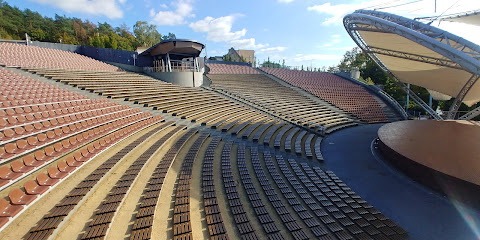
Flying Tiger Copenhagen
Explore a vibrant gift shop in Olsztyn featuring quirky home goods, creative toys, and unique souvenirs for every traveler.
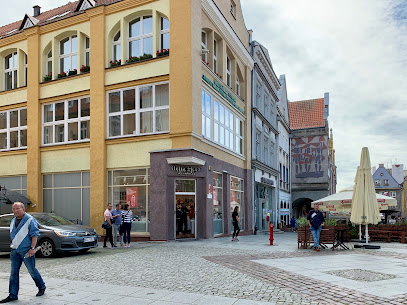
Empik
Explore Empik in Olsztyn for an unparalleled selection of books, unique gifts, and a cozy atmosphere that celebrates culture and creativity.
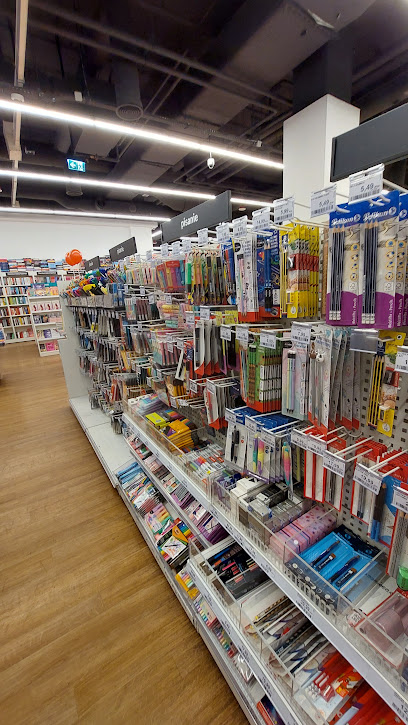
Delikatesy Centrum
Discover the flavors of Poland at Delikatesy Centrum, your go-to grocery store in Olsztynek for local delicacies and fresh produce.
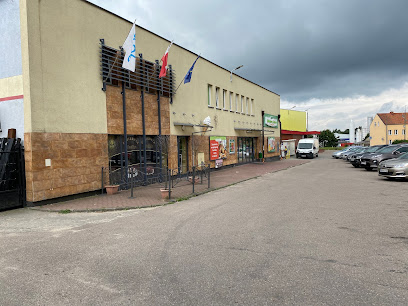
Drogeria Rossmann
Explore Olsztynek's Drogeria Rossmann for a wide array of cosmetics, skincare, and beauty essentials, perfect for travelers looking to pamper themselves.
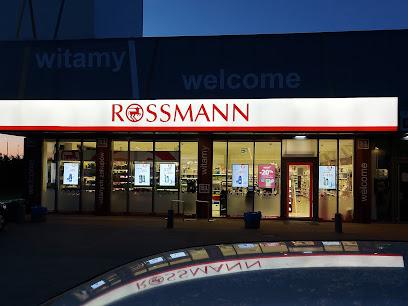
Carrefour Express
Discover the best of local and international flavors at Carrefour Express, your convenient grocery destination in Olsztynek, Poland.
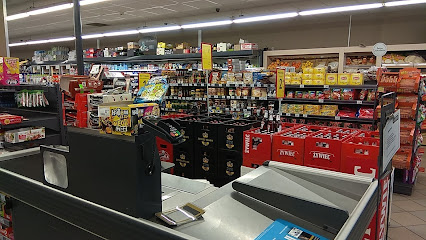
Media Expert
Explore Media Expert in Olsztynek for top-quality home goods, electronics, and appliances to enhance your living experience while visiting Poland.
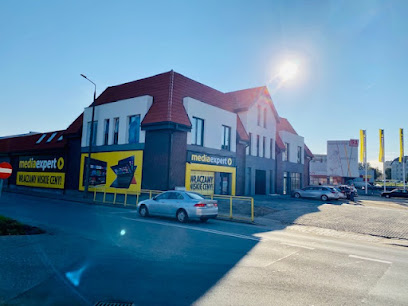
Pepco
Explore Pepco in Olsztynek for stylish children's clothing, toys, and home essentials at unbeatable prices.
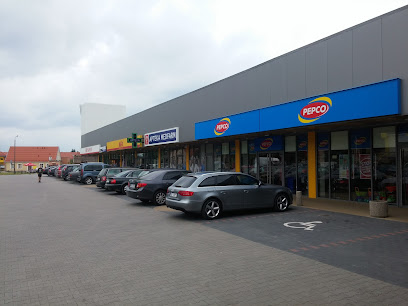
Prim
Discover local flavors and essentials at Prim, Olsztynek's charming grocery store, open daily for all your shopping needs.
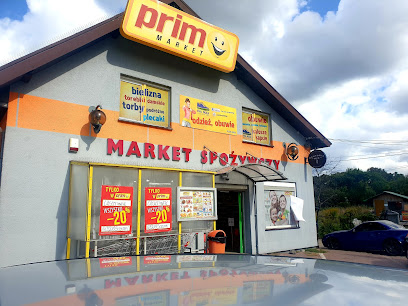
RELEX Leszek Żochowski
Explore RELEX Leszek Żochowski in Stawiguda for a delightful array of stationery, printing services, and toys, inspiring creativity and fun.

Dino
Explore the vibrant Dino supermarket in Stawiguda for local groceries, fresh produce, and quality meats that capture the essence of Polish culinary traditions.

POSTWOOD
Discover unique gifts and delightful souvenirs at POSTWOOD in Nidzica, where creativity meets charm in every corner.
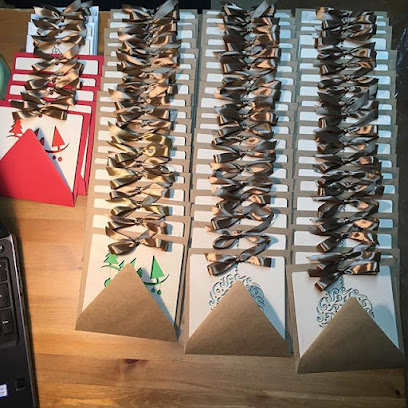
Jedyna Taka Bajka
Explore the whimsical world of Jedyna Taka Bajka, a unique e-commerce service in Olsztyn offering creatively curated gifts and souvenirs.

Essential bars & hidden hideouts
Highlander Whiskey Bar
Discover the rich flavors and cozy ambiance of Highlander Whiskey Bar in Olsztyn, where every sip tells a story and every visit feels like home.
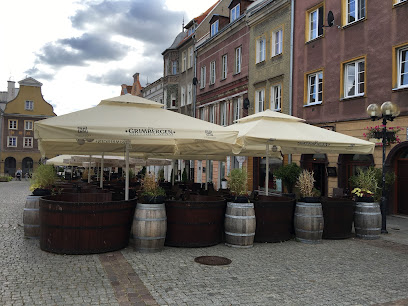
Beczka Pub
Discover the vibrant atmosphere of Beczka Pub in Olsztyn, featuring a diverse beer selection and a welcoming environment for all.
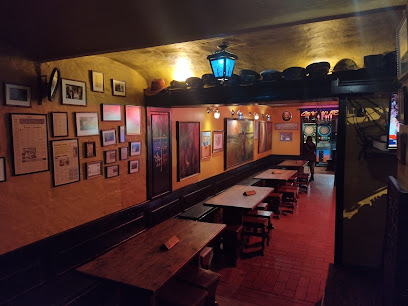
Ratuszowy. Bar. Kowalski W.
Experience the heart of Nidzica at Ratuszowy Bar, where local culture, friendly faces, and delightful beverages await every visitor.
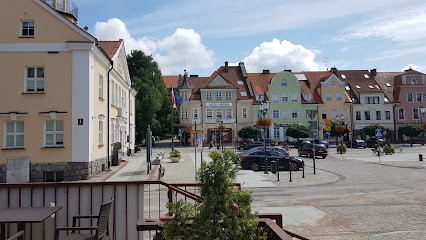
Escobar
Experience the vibrant atmosphere of Escobar, Olsztynek's premier lounge for cocktails, music, and unforgettable memories.
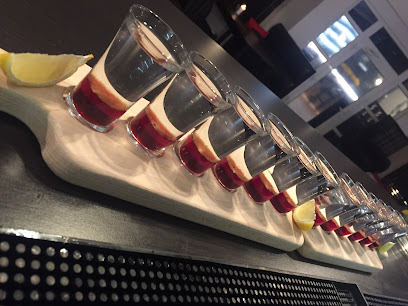
Parking - Bar u Szwagra
Experience the vibrant local culture at Bar u Szwagra, where delicious drinks and a cozy atmosphere await every visitor.
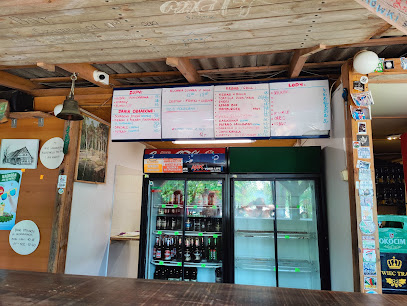
Pomarańcza Pub
Discover the vibrant atmosphere of Pomarańcza Pub in Nidzica, where local brews and lively culture come together for an unforgettable experience.
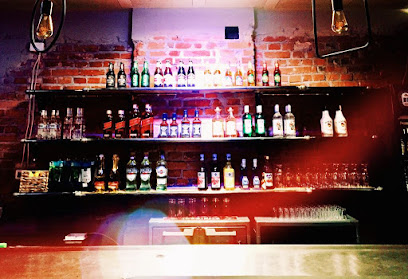
Antyk Cafe
Discover the charm of Antyk Cafe in Szczytno, where darts and delightful drinks come together in a cozy, inviting atmosphere.
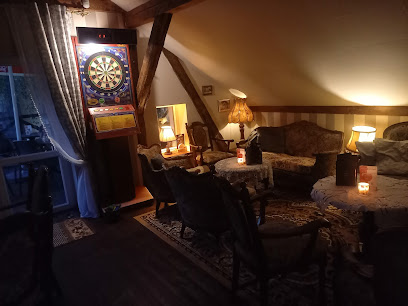
BARbados & Sklep
Experience the vibrant atmosphere of BARbados & Sklep, where delightful drinks and friendly vibes await in Brajniki.
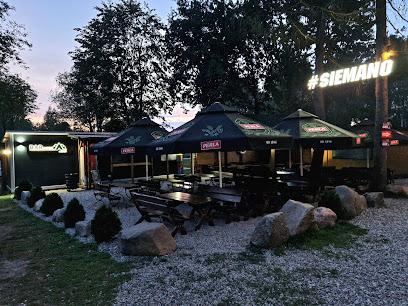
Buła
Experience the warmth and charm of Buła, a cozy bar in Olsztynek, where delightful drinks and friendly atmosphere await.

Grill Bar
Discover the lively Grill Bar in Narty, where great drinks and a friendly atmosphere await every visitor.
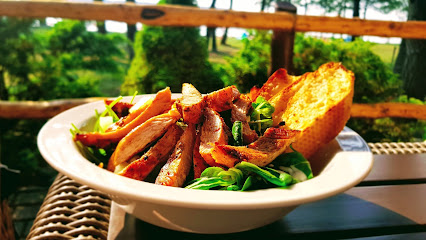
3 Arrows Irish Pub Szczytno
Discover the charm of Ireland at 3 Arrows Irish Pub in Szczytno, where hearty food and friendly atmosphere come together.
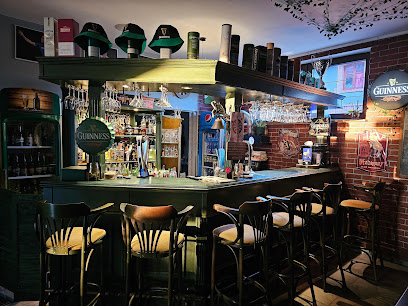
Beach bar
Discover the vibrant beach bar in Nidzica, where stunning views and refreshing drinks create the perfect coastal retreat for tourists.

Bar Oregano Dorota Kobus
Experience the warmth of Polish hospitality at Bar Oregano in Nidzica, a cozy bar offering local drinks in a charming atmosphere.
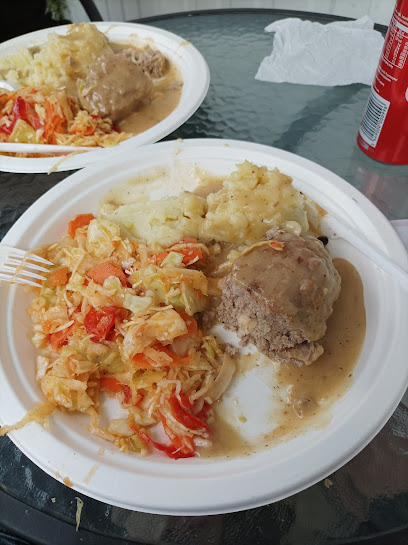
Bar smakosz
Discover the cozy charm of Bar Smakosz, where authentic Polish cuisine meets a warm, inviting atmosphere in Warchały.
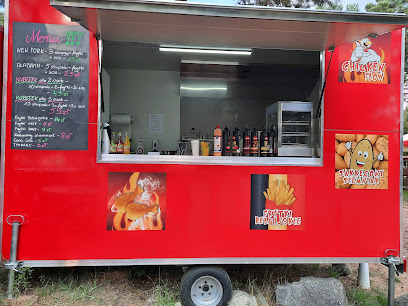
Local Phrases about Masurian Lake District
-
- HelloCześć
[Cheshch] - GoodbyeDo widzenia
[Do veedzenia] - YesTak
[Tak] - NoNie
[Nye] - Please/You're welcomeProszę
[Proshe] - Thank youDziękuję
[Dzyenkoo-yeh] - Excuse me/SorryPrzepraszam
[Pzheprasham] - How are you?Jak się masz?
[Yak sheh mash] - Fine. And you?Dobrze. A ty?
[Dobzheh. A tih?] - Do you speak English?Czy mówisz po angielsku?
[Chy moovish poh ang-yehlskoo?] - I don't understandNie rozumiem
[Nye rozoomyem]
- HelloCześć
-
- I'd like to see the menu, pleaseChciałbym zobaczyć menu, proszę
[Hchyawbim zobacheech menu, prosheh] - I don't eat meatNie jem mięsa
[Nye yem myensa] - Cheers!Na zdrowie!
[Na zdrovyeh] - I would like to pay, pleaseChciałbym zapłacić, proszę
[Hchyawbim zahpwacheech, prosheh]
- I'd like to see the menu, pleaseChciałbym zobaczyć menu, proszę
-
- Help!Pomocy!
[Pomotzy] - Go away!Odejdź!
[Odeydz] - Call the Police!Zadzwoń po policję!
[Zadzvon po politsyeh] - Call a doctor!Zadzwoń po lekarza!
[Zadzvon po lekarza] - I'm lostZgubiłem się
[Zgoobiwem sheh] - I'm illJestem chory
[Yestem hory]
- Help!Pomocy!
-
- I'd like to buy...Chciałbym kupić...
[Hchyawbim koopich...] - I'm just lookingTylko się rozglądam
[Tsilko sheh rozh-gwahdam] - How much is it?Ile to kosztuje?
[Eeleh to kosh-too-yeh] - That's too expensiveTo zbyt drogie
[To zbuit drogyeh] - Can you lower the price?Czy możesz obniżyć cenę?
[Chy mooszesh obneeyoowich tsehneh]
- I'd like to buy...Chciałbym kupić...
-
- What time is it?Która jest godzina?
[Ktoorah yest godzeenah] - It's one o'clockJest pierwsza
[Yest pyervsha] - Half past (10)Pół do (10)
[Pol doh (10)] - MorningRano
[Rano] - AfternoonPopołudnie
[Popoowoodnyeh] - EveningWieczór
[Viechoor] - YesterdayWczoraj
[Vchuray] - TodayDzisiaj
[Dzee-say] - TomorrowJutro
[Yootro] - 1Jeden
[Yeden] - 2Dwa
[Dvah] - 3Trzy
[Tshi] - 4Cztery
[Chteri] - 5Pięć
[Pyehtch] - 6Sześć
[Sheshch] - 7Siedem
[Syedem] - 8Osiem
[Oshyem] - 9Dziewięć
[Dzyevnyehtch] - 10Dziesięć
[Dzyesyentch]
- What time is it?Która jest godzina?
-
- Where's a/the...?Gdzie jest...
[Gdzyeh yest...] - What's the address?Jaki jest adres?
[Yaki yest adres] - Can you show me (on the map)?Czy możesz mi pokazać (na mapie)?
[Chy mooszesh mee pokazach (na mapyeh)] - When's the next (bus)?Kiedy jest następny (autobus)?
[Kyedy yest nastepny (autobus)] - A ticket (to ....)Bilet (do ...)
[Bileht (do ...)]
- Where's a/the...?Gdzie jest...
History of Masurian Lake District
-
The Masurian Lake District, known for its labyrinth of lakes and lush forests, has been inhabited since prehistoric times. Archaeological findings suggest that the region was settled by various tribes, including the early Slavs and Balts. These early inhabitants left behind burial mounds, stone tools, and remnants of fortified settlements, indicating a rich and complex early history.
-
In the 13th century, the Teutonic Knights, a German medieval military order, established control over the Masurian region. They built a series of castles and fortresses, many of which still stand today, like the imposing Boyen Fortress in Giżycko. The Knights' arrival marked the beginning of a series of crusades against the pagan Old Prussians and brought significant Germanic influence to the area.
-
One of the most significant events in Masurian history is the Battle of Grunwald, fought on July 15, 1410. This decisive battle saw the combined forces of the Kingdom of Poland and the Grand Duchy of Lithuania defeat the Teutonic Knights. The victory at Grunwald was a turning point that curbed Teutonic power and led to the eventual decline of their dominance in the region.
-
Following the secularization of the Teutonic Order in 1525, the Masurian region became part of the newly formed Duchy of Prussia. The region experienced a wave of German and Protestant influence, which shaped its cultural and religious landscape. The towns and villages in Masuria grew, benefiting from trade and agricultural development.
-
The Masurian Lake District was a key battleground during World War I. The Battle of Tannenberg, fought in late August 1914, was a significant conflict between the German and Russian armies. The German forces, under the command of Generals Paul von Hindenburg and Erich Ludendorff, achieved a crushing victory over the Russians. This battle not only shaped the course of the war on the Eastern Front but also left a lasting imprint on the region's history.
-
During World War II, the Masurian Lake District was the location of Adolf Hitler's secret military headquarters, known as the Wolf's Lair (Wolfsschanze) near Kętrzyn. This heavily fortified complex served as a command center for the Eastern Front operations. It was here that Colonel Claus von Stauffenberg attempted to assassinate Hitler on July 20, 1944. Today, the ruins of the Wolf's Lair are a poignant reminder of the war's impact on the region.
-
After World War II, the Masurian region became part of Poland. The post-war period saw significant demographic changes, with many German inhabitants leaving and Polish settlers moving in. The region underwent reconstruction and development, transforming into a popular tourist destination known for its natural beauty, outdoor activities, and historical sites. The rich cultural tapestry of Masuria, with its blend of Polish, German, and Baltic influences, continues to attract visitors from around the world.
Masurian Lake District Essentials
-
The Masurian Lake District is located in northeastern Poland. The closest international airport is Warsaw Chopin Airport, approximately 200 kilometers away. From Warsaw, you can take a train to Olsztyn or Ełk, which are the main hubs for reaching the lake district. Buses also operate from Warsaw to various towns in the Masurian region. Alternatively, renting a car provides the flexibility to explore the area at your own pace.
-
Public transportation within the Masurian Lake District includes buses and trains that connect major towns. However, to explore the lakes and remote areas, renting a car or a bicycle is highly recommended. Local taxis are available but can be expensive for long distances. For a unique experience, consider renting a boat to navigate the interconnected lakes.
-
The official currency in Poland is the Polish Zloty (PLN). Credit cards are widely accepted in hotels, restaurants, and larger shops. However, it's advisable to carry some cash, especially in smaller towns and rural areas. ATMs are available in major towns, but ensure to withdraw enough cash before heading into more remote areas.
-
The Masurian Lake District is generally a safe destination for tourists. Standard precautions should be taken, such as not leaving valuables unattended and avoiding poorly lit areas at night. There are no specific high-crime areas targeting tourists, but it's always best to remain vigilant, particularly in crowded spots and during peak tourist season.
-
In case of an emergency, dial 112 for immediate assistance in Poland. Major towns in the Masurian Lake District have police stations and medical facilities. It is highly recommended to have travel insurance that covers medical emergencies. Pharmacies are available in most towns for minor health issues and over-the-counter medications.
-
Fashion: Do dress in layers, as the weather can change quickly. Casual and comfortable clothing is recommended for outdoor activities. Religion: Do respect local customs, especially when visiting religious sites; dress modestly and speak quietly. Public Transport: Do be courteous and offer your seat to elderly passengers. Don't talk loudly or play loud music on public transport. Greetings: Do greet people with a handshake and maintain eye contact. Use 'Dzień dobry' (Good day) when greeting people. Eating & Drinking: Do try local dishes such as pierogi or fresh fish from the lakes. Don't tip excessively; 10% is usually sufficient.
-
To experience the Masurian Lake District like a local, visit during the off-peak seasons of spring and autumn for a quieter experience. Participate in local festivals and events to immerse yourself in the culture. Renting a kayak or sailboat provides a unique perspective of the lakes. Try local delicacies at small family-run restaurants and engage with locals who are often eager to share their knowledge of the region's history and best-kept secrets.
Nearby Cities to Masurian Lake District
-
Things To Do in Elblag
-
Things To Do in Torun
-
Things To Do in Gdansk
-
Things To Do in Warsaw
-
Things To Do in Sopot
-
Things To Do in Bydgoszcz
-
Things To Do in Suwalki
-
Things To Do in Bialystok
-
Things To Do in Lodz
-
Things To Do in Marijampolė
-
Things To Do in Radom
-
Things To Do in Klaipėda
-
Things To Do in Poznan
-
Things To Do in Kaunas
-
Things To Do in Lublin













